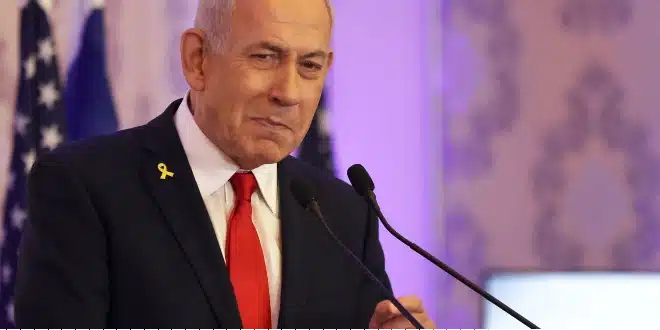Israeli Prime Minister Benjamin Netanyahu has made a direct appeal to the International Committee of the Red Cross (ICRC), urging the organization to provide urgent humanitarian assistance to Israeli hostages held in Gaza. His request comes in the wake of disturbing footage released by Hamas that shows an emaciated hostage, Evyatar David, allegedly being denied food and medical care.
Accusations of Psychological and Physical Abuse in Captivity
On Sunday, August 3, Netanyahu met with Julien Lerisson, head of the Red Cross delegation in the region, and pressed for swift intervention. During the meeting, Netanyahu accused Hamas of spreading what he called “a lie of starvation” to gain international sympathy, while concealing the brutal reality faced by Israeli captives. According to the Israeli leader, it is the hostages—not Gazan civilians—who are suffering extreme deprivation and abuse.
“The world cannot remain indifferent in the face of images that recall Nazi crimes,” Netanyahu said, calling on the international community to confront the tactics used by Hamas. He also urged the Red Cross to publicly condemn both Hamas and Palestinian Islamic Jihad, arguing that their treatment of prisoners violates international humanitarian law, including provisions of the Geneva Conventions.
Shocking Hostage Video Raises Alarm
The prime minister’s plea came a day after Hamas published a video depicting 23-year-old Israeli hostage Evyatar David in dire condition inside a tunnel in Gaza. The footage shows David, gaunt and visibly malnourished, marking dates on a wall as he weakens. Toward the end of the clip, he is seen digging what he refers to as his own grave.
“I am getting weaker and weaker,” David says in the video. “I’m nearing death.”
His family reacted with anguish, describing the video as proof that Hamas is intentionally starving their son as part of a psychological warfare campaign. “Hamas is using our son as a live experiment in a disgusting hunger campaign,” the family said, adding that they fear he only has a few days left to survive under such conditions.
Family and Officials Demand Global Action
David’s relatives have issued an emotional appeal to both Israeli authorities and the broader international community. “Israel and the international community must oppose Hamas’s cruelty and ensure that our Evyatar immediately receives proper nutrition,” they stated.
The family’s claims align with growing concerns among Israeli officials and humanitarian observers that the hostages’ plight is being overshadowed by broader geopolitical narratives. While international focus has often centered on humanitarian crises within Gaza, Israel insists that the condition of hostages like David must not be ignored.
Netanyahu emphasized that humanitarian principles must apply to all civilians, including those unlawfully detained by militant groups. “This is not just a political issue,” he asserted. “It’s a moral imperative.”
Broader Context: The Ongoing Hostage Crisis
The hostage crisis stems from the October 2023 attacks in which Hamas operatives crossed into southern Israel, taking over 200 hostages—both civilians and soldiers—back into Gaza. While some have since been released through negotiations, dozens remain in captivity. Efforts to secure their release have included high-level diplomatic talks, military operations, and appeals to international bodies like the United Nations and Red Cross.
The Red Cross has previously faced criticism from Israeli families for its limited ability to access or assist hostages in Gaza. Sunday’s meeting between Netanyahu and Lerisson marks the latest in a series of diplomatic moves to increase pressure on humanitarian organizations and world powers.
With the video of Evyatar David now circulating widely, calls for action have intensified. Advocacy groups and hostage families are pressing for a more assertive global response to what they describe as clear evidence of war crimes.


